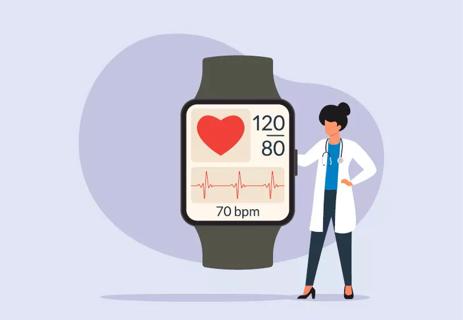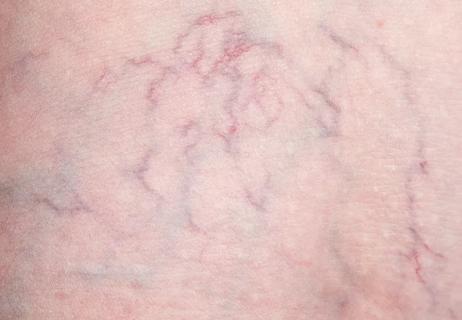Here’s what you need to know about managing your heart health

Learning you have a health condition can be upsetting and frightening, especially if it’s something permanent like coronary artery disease.
Advertisement
Cleveland Clinic is a non-profit academic medical center. Advertising on our site helps support our mission. We do not endorse non-Cleveland Clinic products or services. Policy
It’s estimated that 20.1 million Americans over the age of 20 have coronary artery disease. In other words, if you’re diagnosed, you’re not alone — and chances are good you’ll know someone else with this condition.
But living with coronary artery disease will likely require you to make lifestyle changes. Cardiologist Michael Faulx, MD, explains what you can expect after being diagnosed with coronary artery disease — and the best ways to talk to your doctor about what’s next.
Coronary artery disease is caused by atherosclerosis. With this condition, a fatty material called plaque builds up over time in your coronary arteries (tubes that supply blood to your heart). As a result, these arteries start to narrow and can become partially or fully blocked.
In the short term, how coronary artery disease affects your life depends on the severity of this build-up — and any previous heart-related issues you’ve experienced.
“Atherosclerosis exists across a spectrum,” says Dr. Faulx. “If you’ve had a massive heart attack and a big injury to your heart muscle, you’re going to need more frequent follow-up visits and take a longer list of medications. Your long-term outcome might not be as favorable as people who maybe haven’t had a heart attack or have normal heart pump function.”
Advertisement
After a diagnosis, you’ll need to start having regular follow-up visits with your cardiologist. And more than likely, you’ll need to make some permanent adjustments to your lifestyle. But dietary changes and exercising more can help reduce your risk of developing more severe heart problems in the future.
Coronary artery disease risk factors are often things you can’t control. These include your age, genetics (like if you have a family history of heart disease) or if you have other health conditions, such as diabetes.
But other risk factors for coronary artery disease are within your control to change, or at least attempt to change, through lifestyle changes. Here are a few common ones:
“At a bare minimum, you can expect to take medications that you weren’t previously taking,” says Dr. Faulx. “Many of these medications will be indefinite, or taken for the rest of your life.”
The most common medicine you would take for heart disease is called a statin. “Statins are a workhorse in risk reduction,” he explains. “They’re potent agents for improving longevity and reducing your risk for heart attacks and strokes.”
Statins work by lowering your cholesterol, which, in turn, can help reduce the impact of atherosclerosis. But statins “have properties above and beyond just lowering cholesterol that we think give them their benefit,” Dr. Faulx adds.
“They also affect the way your body processes cholesterol and the way that your plaques behave, so they are less volatile. You’ll have less inflammation and less risk for abrupt coronary events.”
Taking a low dose of daily aspirin can also be a medication option for some people.
“If you’ve never had a cardiac event, or you’re just trying to prevent coronary disease, daily aspirin isn’t recommended,” cautions Dr. Faulx. “This is because low-risk people are statistically more likely to develop a gastrointestinal bleed than being spared a cardiac event with aspirin.”
If you have known atherosclerosis, though — or have previously had a heart attack or some sort of coronary intervention — then things are different. “You’re in a different category,” he continues. “You have a much greater risk for heart attack. The benefit of daily aspirin is much, much greater than the risk.”
Being sedentary is a coronary artery disease risk factor. Healthcare providers recommend 30 minutes of moderate aerobic exercise five times a week.
“I explain to people that ‘moderate’ means you’re huffing and puffing and it would be difficult to have a conversation with you while you were doing it,” explains Dr. Faulx. “You can’t just walk slowly and leisurely for half an hour. You have to push yourself to the point where it feels like you’re exercising.”
Advertisement
Providers often recommend people with heart disease adopt what’s known as the Mediterranean diet, which emphasizes fruits, vegetables, grains, olive oil, fish and chicken.
But along with what you eat, it’s important to look at how much you’re eating. “Portion control is important,” Dr. Faulx says. “Even if you’re eating the right foods, if you’re eating too much of the right foods, that can be detrimental.” He adds that some people also opt to work with a nutritionist to help map out a healthy diet.
Cardiac rehab is often considered a place you’d go to only after you’ve had heart surgery or a heart attack. “It definitely improves outcomes in people who’ve had heart attacks,” says Dr. Faulx. But doctors are now seeing benefits for other conditions, such as heart failure.
“You can still have your doctor give you an exercise prescription,” he says, noting you would first have a treadmill stress test to assess your needs. “Some gyms have trained exercise physiologists that can actually work with you.”
If you’re diagnosed with heart disease, it’s best to avoid overdoing it on saturated fats and sugars. “The keto diet, which is a lot of meat and zero carbs, is probably not the best idea,” Dr. Faulx cautions. “You’ll consume a lot of saturated fat because you’re eating like a carnivore.”
Advertisement
Drinking alcohol in moderation is also important. “It’s not risky, per se, to have a glass of wine with dinner,” he clarifies. “But if you’re having more than one or two drinks a day, you should drink less than that.”
He adds that alcohol itself can also have a negative impact on your heart. “And it’s just extra calories, too. It’s almost like sugar. You’re going to fuel obesity with alcohol.”
Smoking is also a major cause of atherosclerosis, so you should also quit after a coronary artery disease diagnosis.
Understandably, you might have many questions after learning you have coronary artery disease. Your cardiologist can answer any concerns you might have and explain what to expect and what’s best for your individual experience.
“It’s fair to talk to your doctor about your overall outlook and life expectancy because that’s going to vary from person to person,” reassures Dr. Faulx, “You know, ‘How much is this going to impact my longevity?’ And ‘What can I do from my end to improve that?’”
First and foremost, don’t be afraid to ask questions about any aspect of your treatment.
“Ask your doctor to explain each medication you’re taking — why you’re taking it, the benefits and the risks,” advises Dr. Faulx. “Some medications used to treat atherosclerosis have a clear benefit in terms of survival and preventing events, and others are more for symptom control.”
Advertisement
At each doctor visit, go over the list of medications you’re taking and reevaluate which ones are (and aren’t) still necessary. “For example, a drug called Ranexa® can be used to treat the symptom of chest pain,” says Dr. Faulx. “But if you’re chest pain-free — for example, after receiving a coronary stent — then you could stop taking it. And if you don’t have any recurrent chest pain, then you don’t need to be on them.”
Paying attention to your body and identifying any changes that don’t feel right is also important. “Be vigilant about how you’re feeling,” stresses Dr. Faulx. “Not hyper-vigilant — but pay attention to any sensations that are new or feel abnormal to you, and make sure you let your doctor know.”
For example, if you start having problems finding the right words when speaking, or you experience numbness or tingling in your body, that could indicate a stroke or a related concern, like a transient ischemic attack (TIA).
People living with atherosclerosis can also develop conditions in arteries in other parts of their bodies. One common one is peripheral arterial disease, which happens when plaque builds up in your leg arteries. “If you get pain in your legs with walking, but that gets better when you rest, that could be a sign of peripheral arterial disease,” warns Dr. Faulx. “You might not necessarily relate it to a vascular problem. You might think it’s just a Charley horse or something like that.”
If you’re experiencing symptoms associated with anxiety or depression that are related to your coronary artery disease diagnosis, that’s also perfectly normal. “Some patients develop a lot of anxiety related to ‘What if?’ questions,” concedes Dr. Faulx.
In fact, don’t be afraid to bring these concerns up with your doctor as well. They can refer you to a mental health professional as needed.
“Frankly, it’s something that your cardiologist should be asking every time they see you,” states Dr. Faulx. “They should ask, ‘How are you feeling? Do you have any symptoms that worry you? Are you worried about a cardiac event? Do you feel anxious? Do you feel depressed?’”
Above all, if you’re diagnosed with coronary artery disease, try not to blame yourself.
“People are often upset and, at times, even a little too hard on themselves in terms of why they have this,” recognizes Dr. Faulx. “You might feel like, ‘I didn’t exercise enough. I don’t eat right.’ Or maybe you feel you developed this because of something that you did wrong, which isn’t always the case. But this is a condition that can be managed and there are things you can change in your life to improve your health.”
Learn more about our editorial process.
Advertisement

At-home options aren’t your best bet — instead, consider noninvasive laser treatments with a dermatologist

Blood flow can benefit from leg elevation and even low-impact exercise, like walking

Congenital heart disease, genetic conditions and unhealthy lifestyle habits can put teens at higher risk for heart attack

Studies have shown an increase in ophthalmic complications as a symptom of COVID-19

Research shows a strong association between rheumatoid arthritis and heart issues

Both are related to your cardiovascular system, and both can impact the other

Unlike varicose veins, spider veins don't necessarily indicate poor circulation

It typically happens when blood flow is blocked when a limb rests in the same position too long

Start having sex about 72 hours before ovulation, then at least every other day during your fertile window

Attachment theory suggests that your earliest relationships shape connections throughout your life

It isn’t a recognized mental health disorder, but research shows that problematic social media use can negatively affect your mental health, self-esteem and sleep